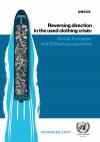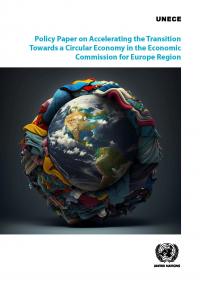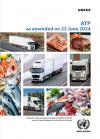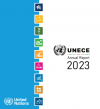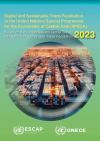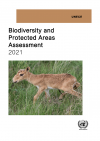Publications
Displaying Results 1 - 6 of 6
- English
The textile industry has evolved from a production model based on natural fibres and protectionist policies for local industry to a model where synthetic fibres have become pervasive, production has been offshored, and the speed of manufacture and distribution of products has increased rapidly. Most of the fashion industry operates under the fast-fashion model, which involves more collections per
- English
This policy paper reviews the state of play of traceability and transparency approaches in three economic sectors critical to the circular transition in the ECE region: the agrifood, garment and footwear, and minerals sectors. Moreover, it provides an overview of the challenges and opportunities for advancing the circular economy and highlights successful practices from the whole region. Lastly,
- English
The Agreement on the International Carriage of Perishable Foodstuffs and on the Special Equipment to be Used for such Carriage (ATP) was done at Geneva on 1 September 1970 and entered into force on 21 November 1976.
The objectives of the ATP are to facilitate international transport of perishable foodstuffs and to ensure a high level of preservation of the quality of perishable foodstuffs during
- English
Amid multiple ongoing crises, UNECE’s 2023 SDGs status report revealed that the region was further away from achieving the 2030 Agenda for Sustainable Development than it had been a year earlier.
The 2023 Annual Report illustrates how UNECE is supporting countries to accelerate SDGs progress and respond to key sustainable development challenges, leveraging its practical normative tools and policy
- English
This report is part of a global survey effort on the implementation of trade facilitation and paperless trade measures, undertaken jointly by the five United Nations Regional Commissions for Africa (ECA), Europe (ECE), Asia and the Pacific (ESCAP), Latin America and the Caribbean (ECLAC) and West Asia (ESCWA) as well as the United Nations Conference on Trade and Development (UNCTAD).
This report
- English
This assessment was conducted between 18 June 2020 and 3 June 2021 with the objective of analyzing the developments and challenges in the management of biodiversity and protected areas (PAs) in 14 countries that carried out and completed a ECE Environmental Performance Review (EPR) under its 3rd cycle (further 3EPR) since 2014. This includes Albania (2018), Belarus (2016), Bosnia and Herzegovina


